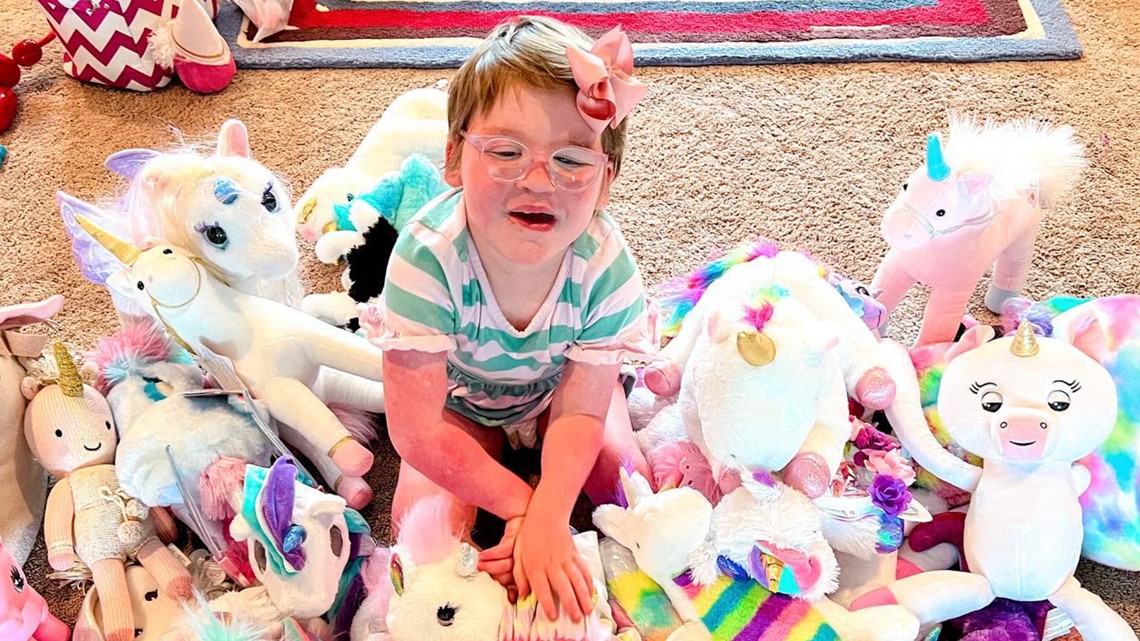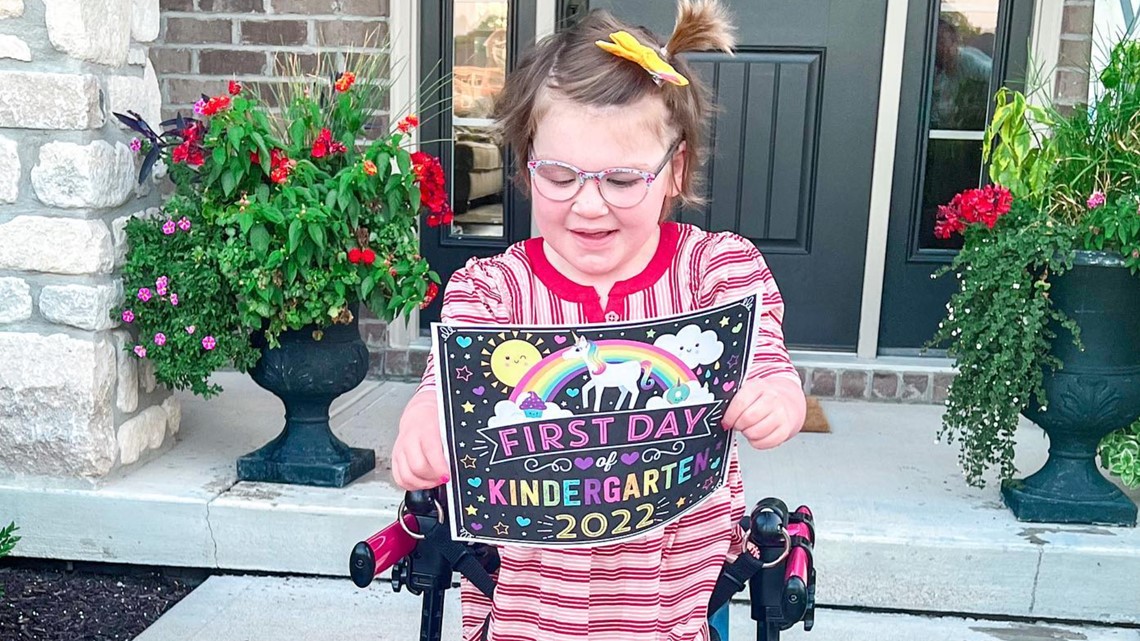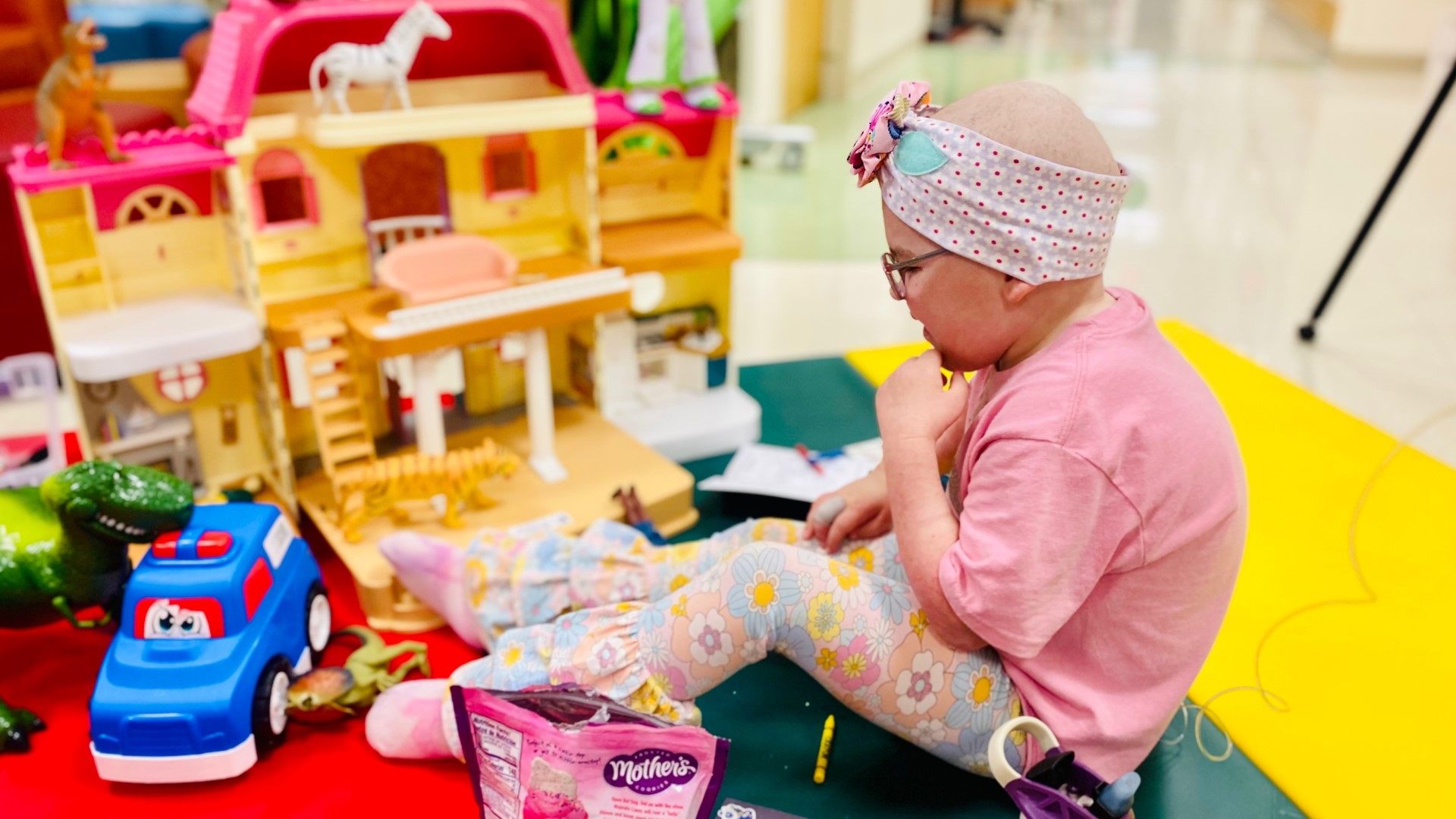WESTFIELD, Ind. — Londyn Hoffman was at Riley Hospital for Children on Thursday, receiving her sixth week of chemotherapy.
“Londyn has been a Riley kid pretty much her whole life,” said Jenna Hoffman, Londyn’s mom.
The Westfield 6-year-old was born with a rare genetic condition, experienced a rare neurological syndrome and is now fighting a rare cancer for the second time.
Her journey started last year, when her family noticed something wrong with her eye. Doctors ran some scans and diagnosed Londyn with rhabdomyosarcoma.
“Essentially, there was a tumor behind her eye that was making her eye protrude, and that’s how we first caught it. It’s a fast-growing type of cancer, but lucky we caught it right away,” Jenna said.
Londyn underwent 40 weeks of chemotherapy and traveled for radiation at a Cincinnati hospital.
But before the trip, Londyn ran into another roadblock. She was diagnosed with a rare neurological condition called Guillain-Barre syndrome. She was in the ICU for six weeks.
Despite that, Londyn pushed through and, last November, she was finally in remission and her cancer was gone.
“Essentially, the existing tumor was dead,” said Jenna.
At least that was the hope. But in July, the Hoffman’s noticed Londyn’s eye protruding again.
“Immediately I knew something wasn’t right,” Jenna said.
Sure enough, doctors ran more scans and found that the rare cancer came back.


“When we found out it was a relapse, it was really hard and it all happened so quickly,” Jenna said.
Unlike the first round of treatment, this time there wasn’t a clear roadmap or plan.
“It’s a lot harder the second time when your child has a relapse. The first time it’s like, 'Here is this playbook, we are going to put you on this protocol,'” said Jenna. “This time, there is no playbook. You don’t know what to do next. You just know there is a handful of chemotherapy treatments out there that we can try.”
That’s because there is not a lot of national funding for pediatric cancer research.
“We have a deficit compared to adult cancer research,” said Dr. Michael Ferguson, an assistant professor of pediatrics and medical director of the Pediatric Cancer Precision Genomics Program.
Ferguson said pediatric cancer is very underfunded because the diseases are considered rare compared to adult cancers. Right now, only 4% of government funding is devoted to this type of research, according to the Pediatric Cancer Research Foundation.
That’s why Ferguson said many studies rely on grassroots efforts and family donations.


Riley Hospital for Children also has the Herman B. Wells Center for Pediatric Research at the Indiana University School of Medicine that focuses on a variety of conditions.
“We really want to make up that deficit so we can one day say that any child that walks through this door, there is a good chance we are going to cure them,” Ferguson said.
In the meantime, the Westfield community continues to rally around Londyn and her family.
On top of that, the brave 6-year-old just started kindergarten as she tackles another round of chemotherapy.
“She just loves life," Jenna said. "She really does.”
Londyn’s family is working to navigate this uncharted territory, hoping their daughter’s unique journey will make a difference and inspire others to get involved in pediatric cancer research.

